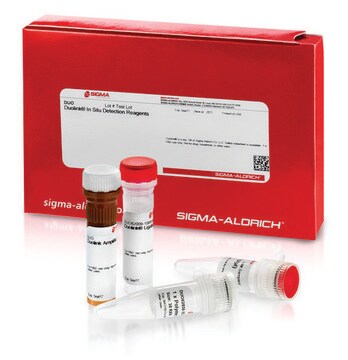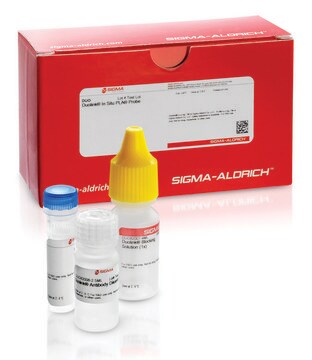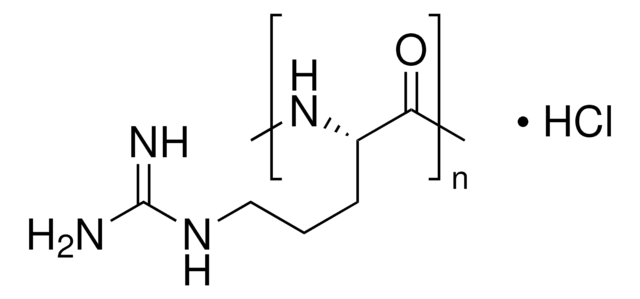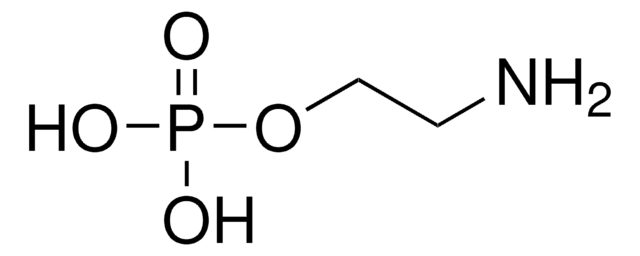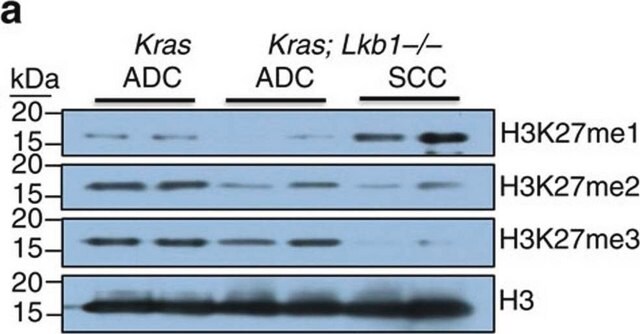ABS1849
Anti-phospho-Rsk1 (Thr359/Ser363) Antibody
from rabbit, purified by affinity chromatography
Sinônimo(s):
Ribosomal protein S6 kinase alpha-1, Thr359/Ser363 phosphorylated, 90 kDa ribosomal protein S6 kinase 1, Thr359/Ser363 phosphorylated, MAP kinase-activated protein kinase 1a, Thr359/Ser363 phosphorylated, MAPK-activated protein kinase 1a, Thr359/Ser363 p
About This Item
Produtos recomendados
fonte biológica
rabbit
Nível de qualidade
forma do anticorpo
affinity isolated antibody
tipo de produto de anticorpo
primary antibodies
clone
polyclonal
purificado por
affinity chromatography
reatividade de espécies
human
reatividade da espécie (prevista por homologia)
porcine (based on 100% sequence homology), bovine (based on 100% sequence homology), chicken (based on 100% sequence homology), Xenopus (based on 100% sequence homology)
técnica(s)
immunohistochemistry: suitable
immunoprecipitation (IP): suitable
inhibition assay: suitable (peptide)
western blot: suitable
nº de adesão NCBI
nº de adesão UniProt
modificação pós-traducional do alvo
phosphorylation (pThr359/pSer363 )
Informações sobre genes
human ... RPS6KA1(6195)
Descrição geral
Especificidade
Imunogênio
Aplicação
Immunohistochemistry Analysis: A 1:250-1000 dilution from a representative lot detected Rsk1 Thr359/Ser363 phosphorylation in human cervical cancer tissue, normal kidney, liver, and small intestine tissue sections.
Peptide Inhibition Assay: Preincubation with the immunogen peptide, but not the corresponding non-phosphorylated control peptide, prevented the polyclonal antibody from detecting the target Rsk1 phosphorylation band.
Signaling
Kinases & Phosphatases
Qualidade
Western Blotting Analysis: 0.1 µg/mL of this antibody detected enhanced Rsk1 Thr359/Ser363 phosphorylation in 10 µg of lysate from EGF-treated A431 cells.
Descrição-alvo
forma física
Armazenamento e estabilidade
Outras notas
Exoneração de responsabilidade
Não está encontrando o produto certo?
Experimente o nosso Ferramenta de seleção de produtos.
Código de classe de armazenamento
12 - Non Combustible Liquids
Classe de risco de água (WGK)
WGK 1
Ponto de fulgor (°F)
Not applicable
Ponto de fulgor (°C)
Not applicable
Certificados de análise (COA)
Busque Certificados de análise (COA) digitando o Número do Lote do produto. Os números de lote e remessa podem ser encontrados no rótulo de um produto após a palavra “Lot” ou “Batch”.
Já possui este produto?
Encontre a documentação dos produtos que você adquiriu recentemente na biblioteca de documentos.
Nossa equipe de cientistas tem experiência em todas as áreas de pesquisa, incluindo Life Sciences, ciência de materiais, síntese química, cromatografia, química analítica e muitas outras.
Entre em contato com a assistência técnica